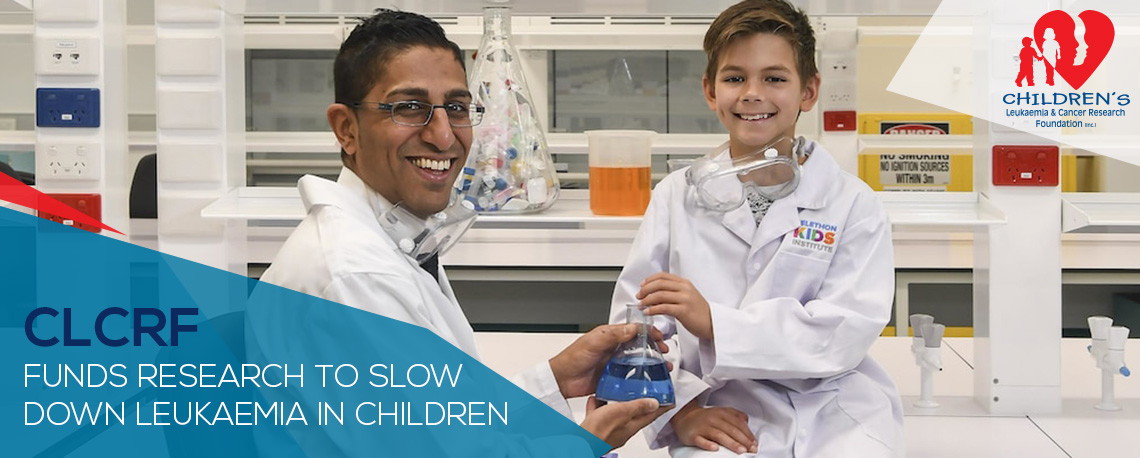
CLCRF Funds Research to Slow Down Leukaemia in Children
Dr Rishi Kotecha, one of the scientists at the Perth Children’s Hospital, is leading the way in research, funded by the Children’s Leukaemia & Cancer Research Foundation Inc. This research has unlocked a vital key to slow down the progression of leukaemia in children.
The journey for a child with cancer is not a straightforward one, and has many ups and downs. Dr Rishi Kotecha says it’s wonderful when he hears from patients many years later who are well again, graduating from university or starting families of their own. At times his job has difficult moments such as discovering that the prognosis is not good for a young cancer patient. As a result, he is determined to discover new lifelines and better treatments that can lessen the suffering of children with leukaemia.
Working together with eight scientists, Dr Kotecha’s team of researchers at the Telethon Kids Institute, may have found a vital key that will slow down progression of leukaemia in children and has opened the door to a new way of thinking about treatment. These findings have been so significant that he and lead author, Dr Laurence Cheung, published them in the prestigious Nature journal, Leukaemia.
The researched looked at acute lymphoblastic leukaemia (ALL), which is the most common cancer among children, and a specific type called pre-B ALL.
More than a third of children with pre-B ALL have bone pain and skeletal defects at the time of diagnosis so the researchers wanted to know what was causing these symptoms.
“The bone pain at diagnosis can be quite severe,” adds Dr Kotecha, “not in all cases, but in a lot of cases there are aches, pain and fractures because their bones are brittle.”
The research team set to work by creating a highly aggressive subtype of pre-B ALL in their lab models.
They were able to identify a signal produced by the leukaemia cells which instructed cells in the micro-environment to eat away at the bone.
Desperate to find out how to stop those bone-eating cells wreaking further carnage, they tried using a commercially available drug called zoledronic acid.
The drug, which was already known to be safe for children, was a game changer.
Not only did it help reduce bone fragility, it slowed the advancement of the cancer.
Sadly, Australia was found to have one of the highest rates of leukaemia in the world. The survival rates have dramatically improved over the past 60 years but it is still one of the most common causes of cancer-related death in young people.
One of Dr Kotecha’s patients, Xander Thelan, is today the picture of health. So it is hard to believe that this 10-year-old Perth boy underwent three-and-a-half years of gruelling chemotherapy to treat leukaemia and benefited from taking part in clinical trials using a novel drug that came about from the research findings.
Xander was only five when he was diagnosed with leukaemia. Thanks to clinical trials coming from this key research, Xander finished chemotherapy last year and is now doing well.
The Telethon Kids Institute is working at a local, national and international level to try to further understand leukaemia and find and test new treatments such as this one.
“We just feel so lucky to live in Australia, in a country with such good health care and the research that they’re doing, because it is world class,” says Xander’s mother, Naomi Kerp.
“It was a wonderful feeling and it’s such a long road, three-and-a-half years of chemotherapy, that when you reach the end it’s just this beautiful feeling that it’s finally over.”
Dr Kotecha says that happy outcomes such as Xander’s continues to drive him.
The CLCRF is proud to fund international class research by scientists such as Dr Rishi Kotecha, Dr Laurence Cheung and their team that leads to better outcomes for children with cancer.
Photo taken by: Iain Gillespie
